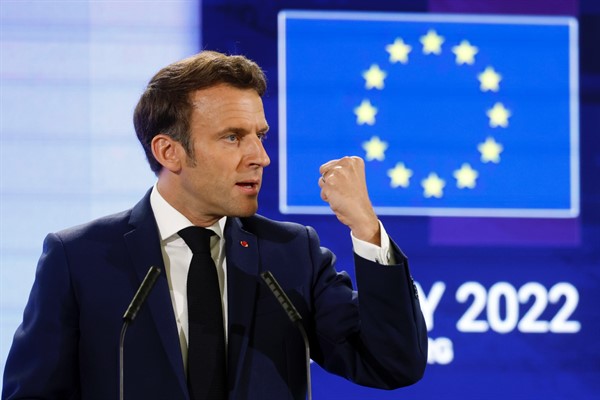While Europe gets ready to tune into this year’s Eurovision Song Contest taking place Saturday in Turin, Italy, European Union officials in Brussels are engaged in a competition of their own: to spin the outcome of the recently concluded Conference on the Future of Europe that EU leaders say will shape the future of the 27-member union.
The conference, which had been running for the past year, consisted of citizens’ groups that contributed policy proposals for reforming the EU, which were presented to EU leaders at its close on Monday. The brainchild of French President Emmanuel Macron, who conceived of it during his first presidential campaign in 2017, it was described by the European Commission as “a transparent, inclusive and structured debate with European citizens about the issues that are of relevance to them and for their future.”
But right from the start, the conference was undermined by several EU governments worried that it would recommend a treaty change ending requirements for unanimity on key issues like defense and foreign policy. The threat of losing their veto power is a particular concern for the EU’s smaller countries, which under the current system can block policies they oppose, as Hungary is threatening to do with the proposed EU embargo on Russian oil.

